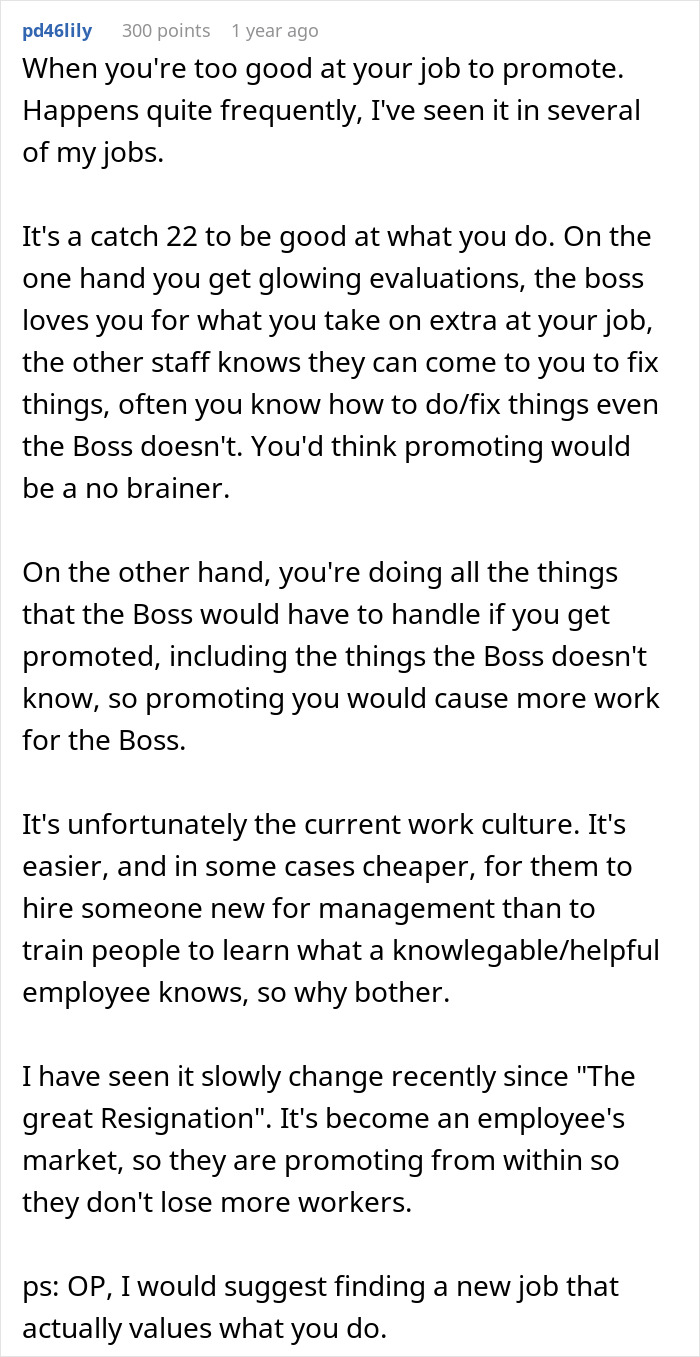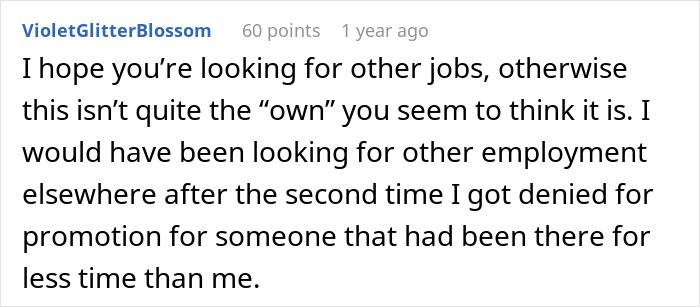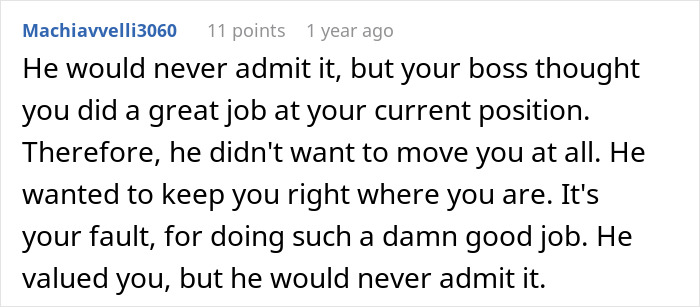Many high-achievers undertake extra responsibilities outside their scope of work, with 4 in 10 saying they spend about 30% of their workday performing additional duties. These people are usually the first ones to arrive and leave, and their evaluations are always glowing. But some of them still aren’t getting promoted.
Redditor Sarchasm-Spelunker has found themselves in a similar situation. Working for a tech company, they accumulated extra duties that they didn’t mind doing, as the position was fairly simple. But when they applied for several promotions, the boss chose newbie coworkers instead of them every time.
Despite many efforts, the employee realized that they weren’t going any further in the company and decided to “quiet quit.”
Many undertake extra work responsibilities, expecting some kind of reward

Image credits: David McEachan / pexels (not the actual photo)
But this employee was left discouraged after boss denied their promotion and ordered to get back to work
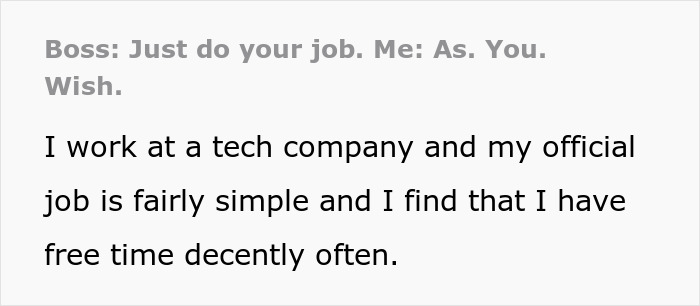
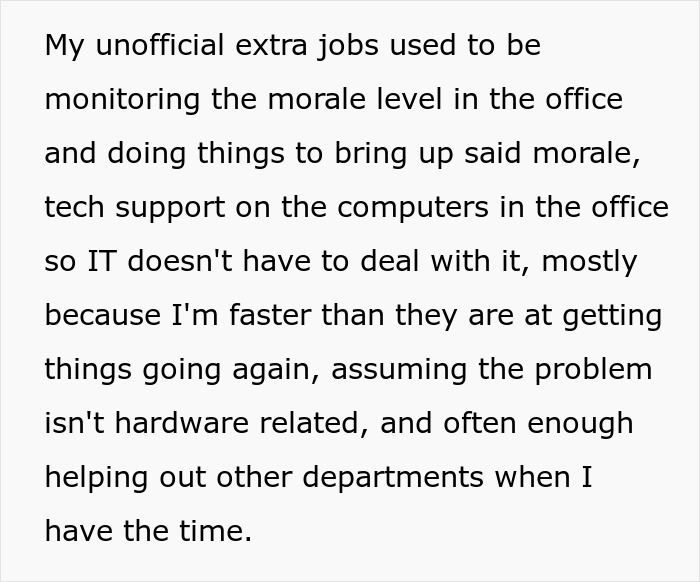
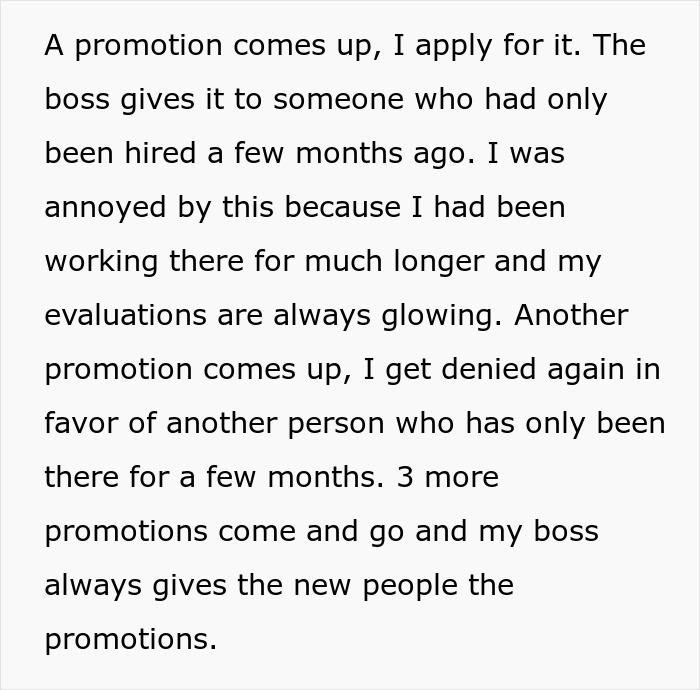

Image credits: Tima Miroshnichenko / pexels (not the actual photo)
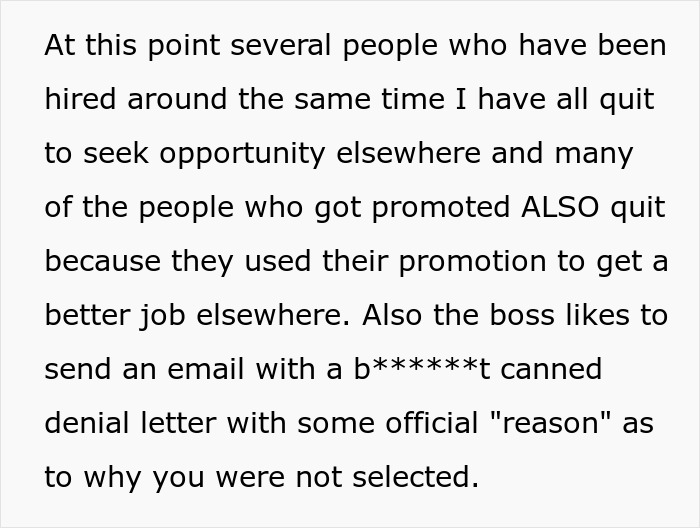
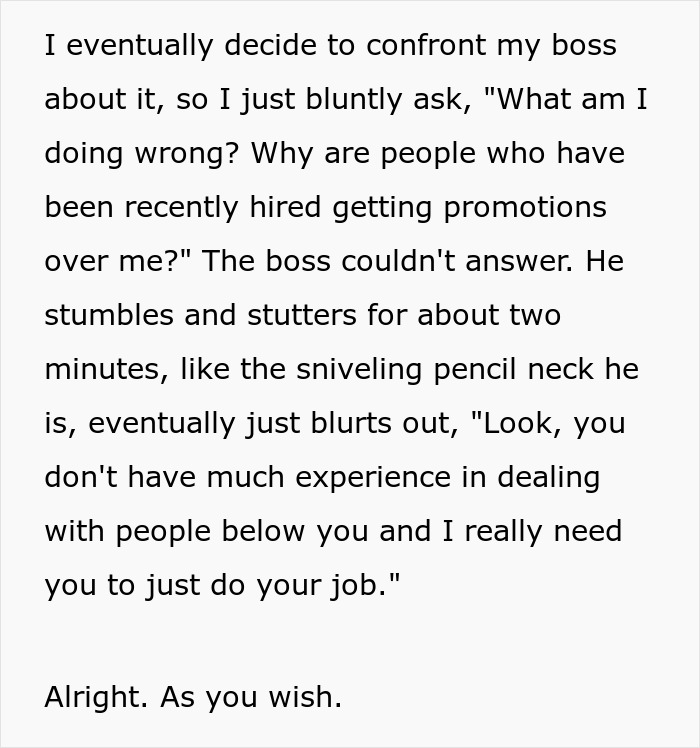

Image credits: Polina Zimmerman / pexels (not the actual photo)
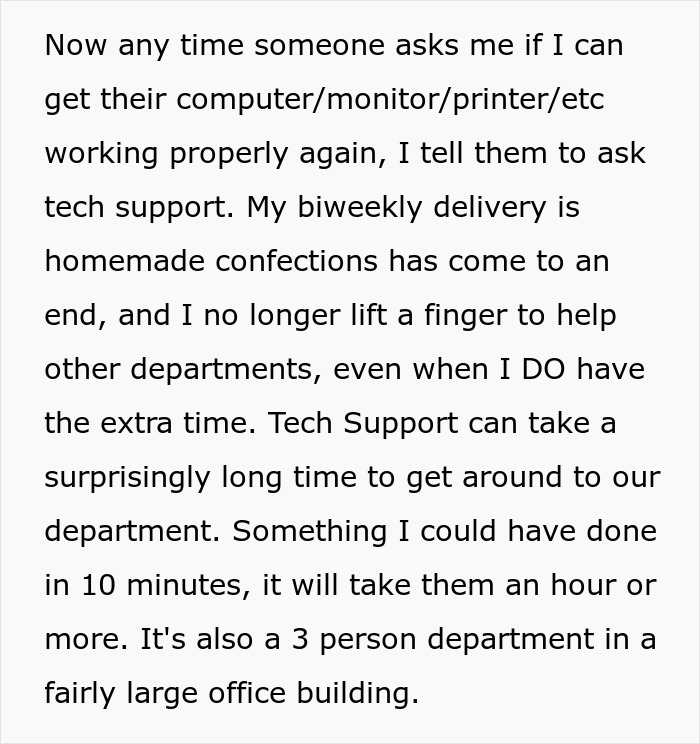
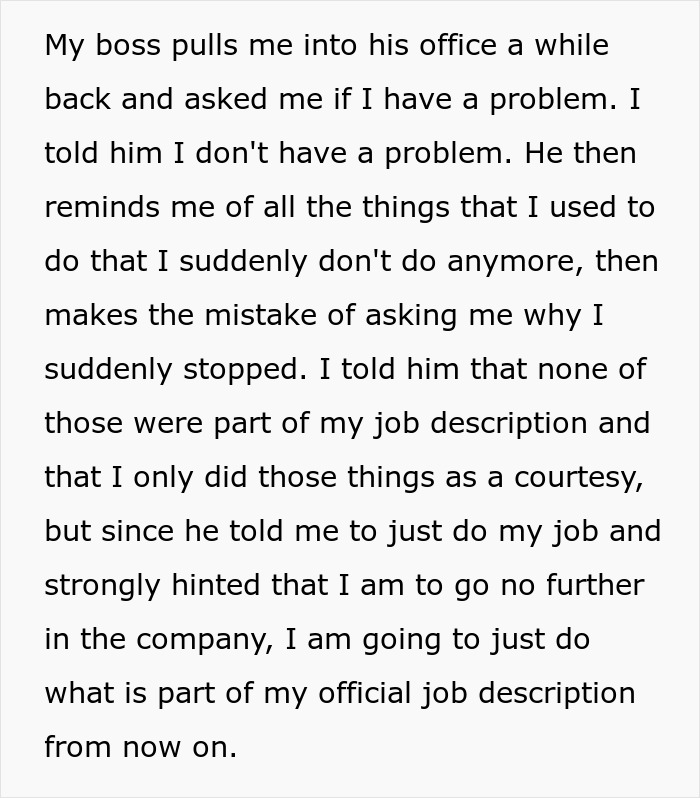
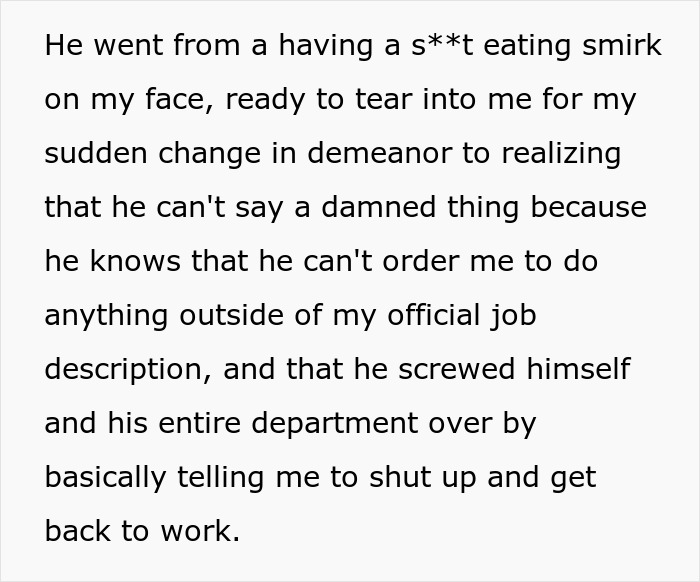
Image credits: Sarchasm-Spelunker
Many are ‘quiet quitting’ and ‘quiet promotion’ is one of the reasons
Without recognition for their efforts, benefits, or promotions, employees, like the author of the story, are ‘quiet quitting.’ It’s estimated that at least 50% of the U.S. workforce is just meeting their job description and isn’t going above and beyond at their positions, and quiet or dry promotions are a significant part of it.
The term quiet promotion means undertaking more work without a raise in salary or position. JobSage co-founder Kelli Mason told a workplace news outlet that oftentimes it happens unintentionally, as an employee may naturally take on more responsibilities after getting more comfortable in their role. However, she notes that “other times, some may take advantage of their employees, and if they see employees taking on more and more work without complaints, they’ll continue to pile it on.”
An extra workload can also be the consequence of losing a specific role or cutting down expenses. A quiet promotion is typically less expensive than replacing an employee. According to data from the Harris Poll, turnover can cost more than $50,000 a year for companies. In addition, since new hires may lack the same level of skills as previous team members, increasing the workload for remaining staff can be a quick remedy.
A study by JobSage found that this particularly happens in the art, design, and hospitality industries, with 89% of workers reporting being quietly promoted. Jobs in food service, government, and education were also high on the list.
The main problem with this phenomenon is that it pushes people to do more without being recognized for it. Feeling appreciated and valued is a strong force that pushes employees to be more productive and feel secure in their positions. Companies’ failure to meet the needs of staff can result in increased turnover and dissatisfaction with work. Long-term quiet promotion can also result in exhaustion, overwork, and even burnout. Furthermore, having the responsibility without the title change means that employees miss out on opportunities to develop their careers.

Image credits: fauxels / pexels (not the actual photo)
The bright side of undertaking extra work tasks with no pay
But experts also see a bright side to it. For example, companies giving dry promotions are unknowingly building employee resumes that they can use to find a better-paying job. It can also encourage personal and professional growth, as new responsibilities allow employees to improve their skills and learn something new. Completing important projects and complex tasks shows that one is capable of taking on bigger responsibilities, which can then result in a salary raise and a title change.
When offering a no-raise promotion, companies need to be transparent and provide reasons for it. Otherwise, they risk creating distrust in the workplace. The so-called “promotion” also needs to have recognition and rewards that will further lead to career opportunities. If it doesn’t align with the employee’s future goals and simply involves more work, then it can lead to disappointment and even leaving the organization.
During such a demanding period, employers have to make sure that staff members are valued and appreciated. Compensation doesn’t always have to mean a pay increase. Offering more benefits, such as paid time off, flexible schedules, and remote or hybrid options, will boost employees’ work-life balance and make them feel acknowledged.
Another great way to boost morale is to get creative with the company’s appreciation strategies. Apps like “Tap My Back” make it easy and fun by allowing employers to tap and assign a recognition badge such as critical thinker, team player, or quality achiever. The organization’s feed becomes full of positive encouragement and feedback given to coworkers. In fact, studies have shown that doing this publicly is 6.6% more effective than traditional rewards.
On the other hand, if the situation still seems unattainable, the employee needs to be ready to reassess the workload, expertise, and career goals and have another discussion with the leader about increased responsibility. If the employer is not willing or able to come to a decision that suits both sides, it might be time to start looking for other alternatives, like the person in the story who decided to do the bare minimum.

Image credits: olia danilevich / pexels (not the actual photo)
The OP joined the comments to provide more information on the situation
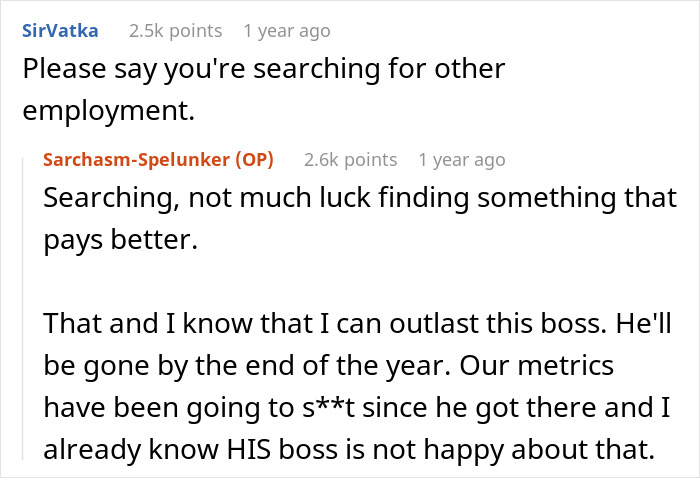
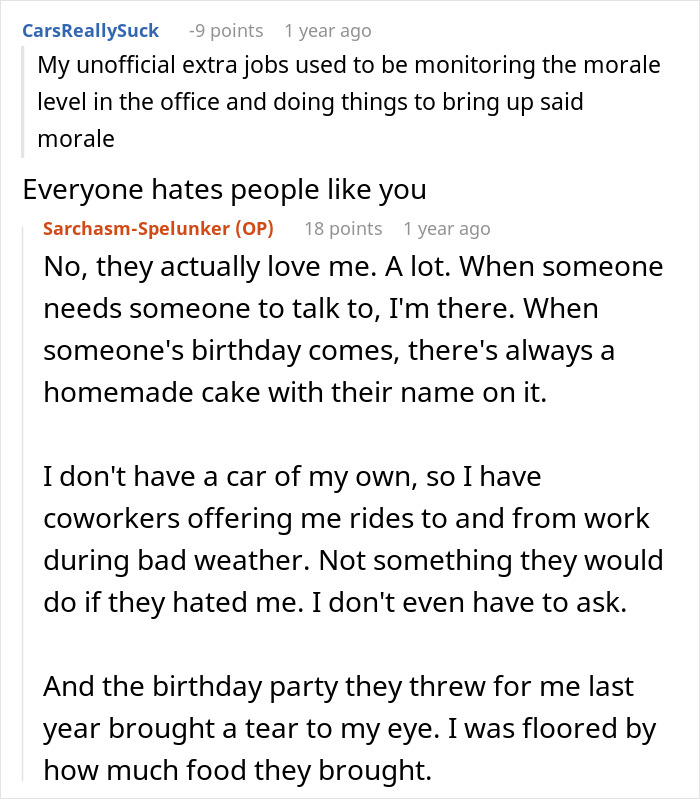
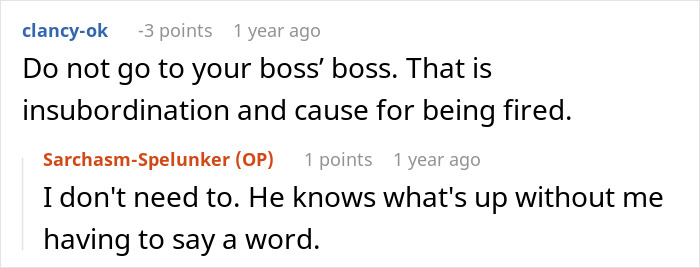
Those with similar experiences provided some advise
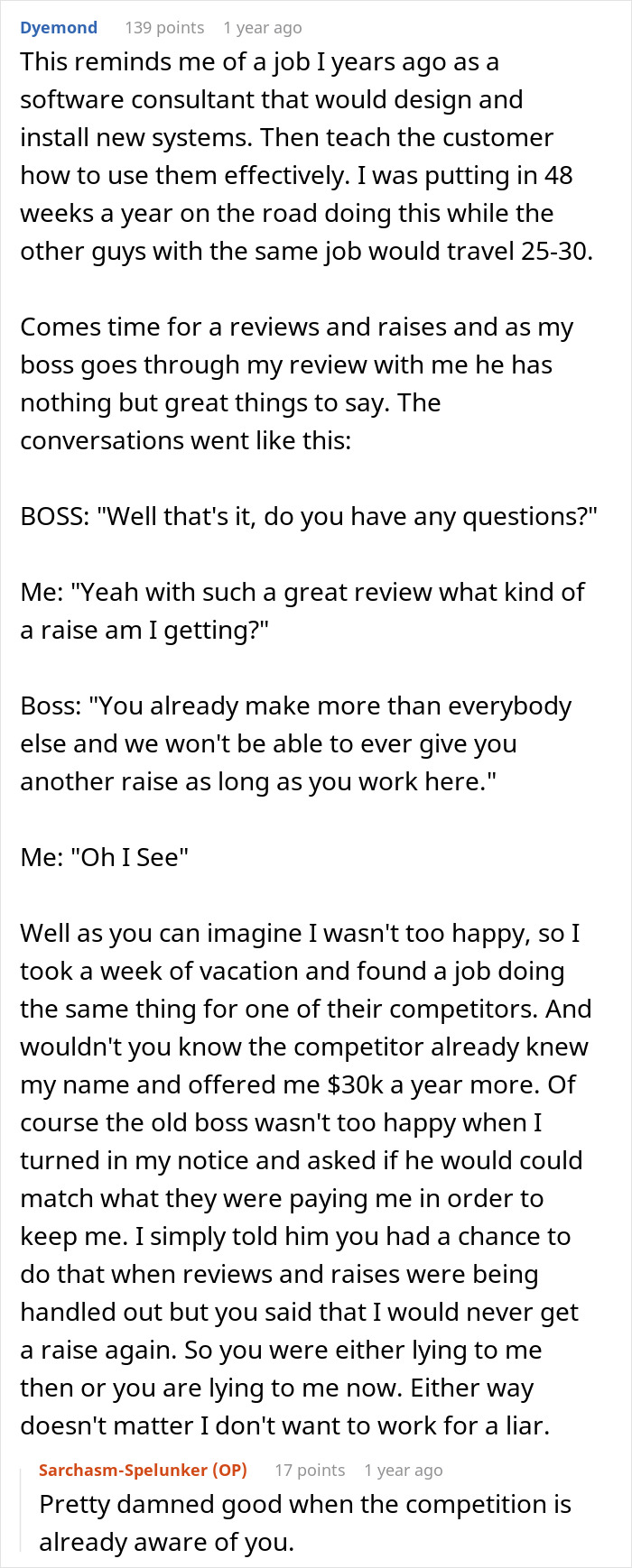
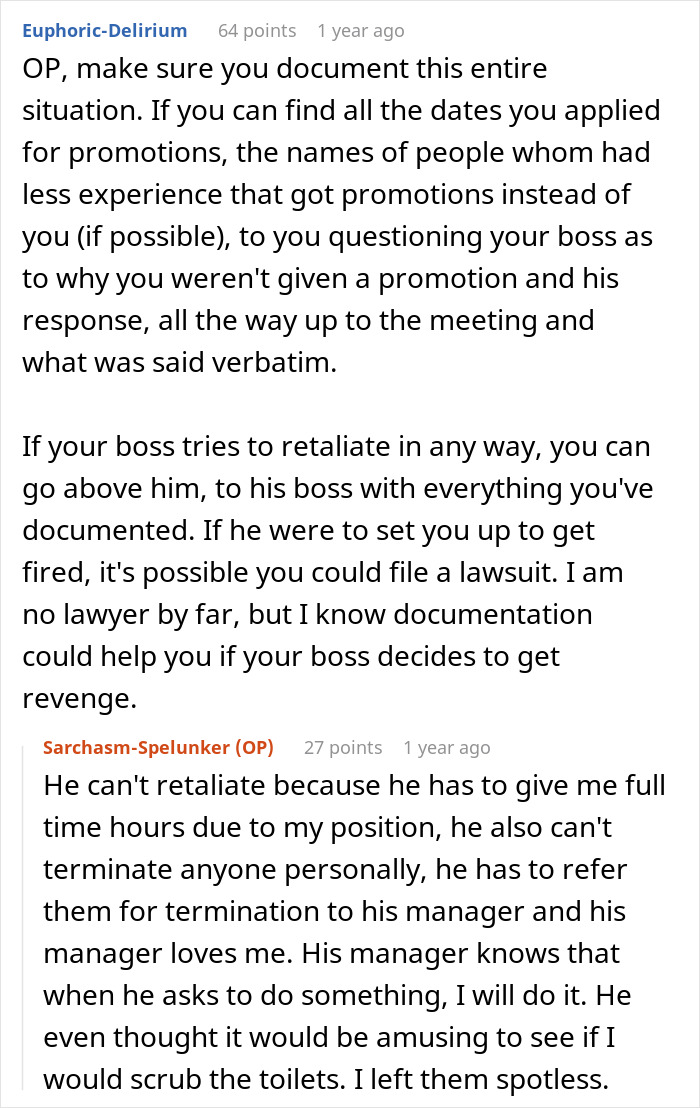
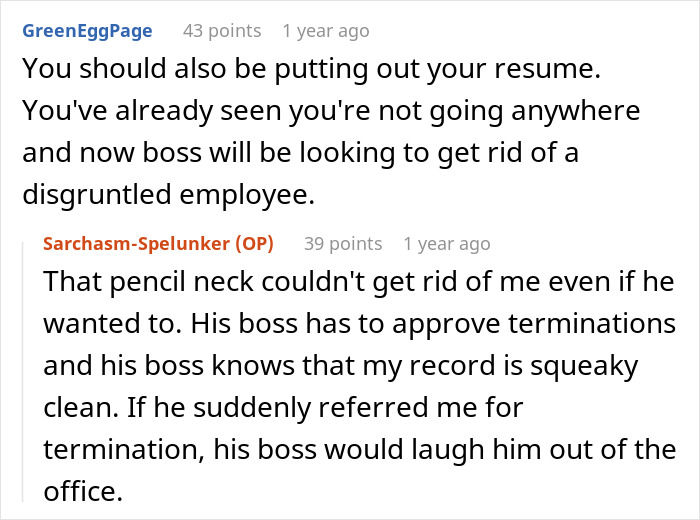
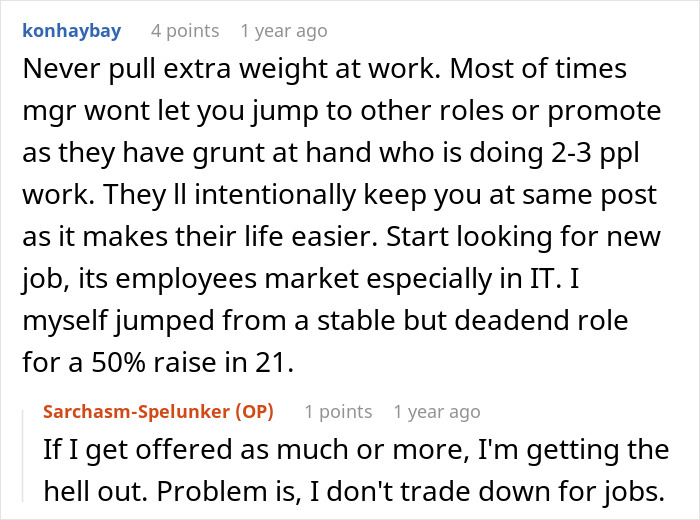
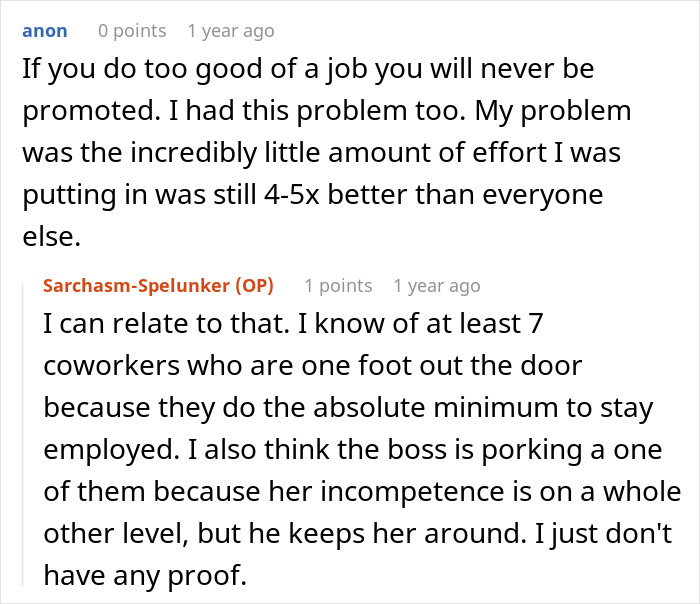
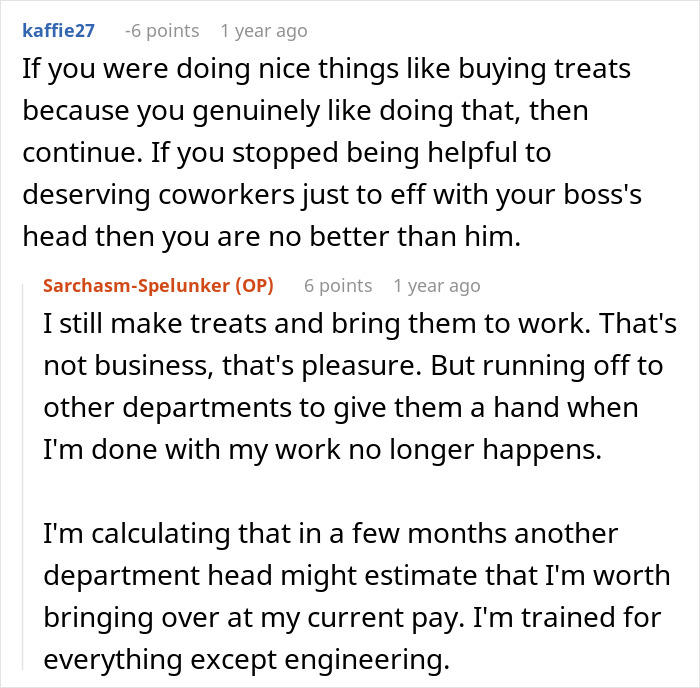
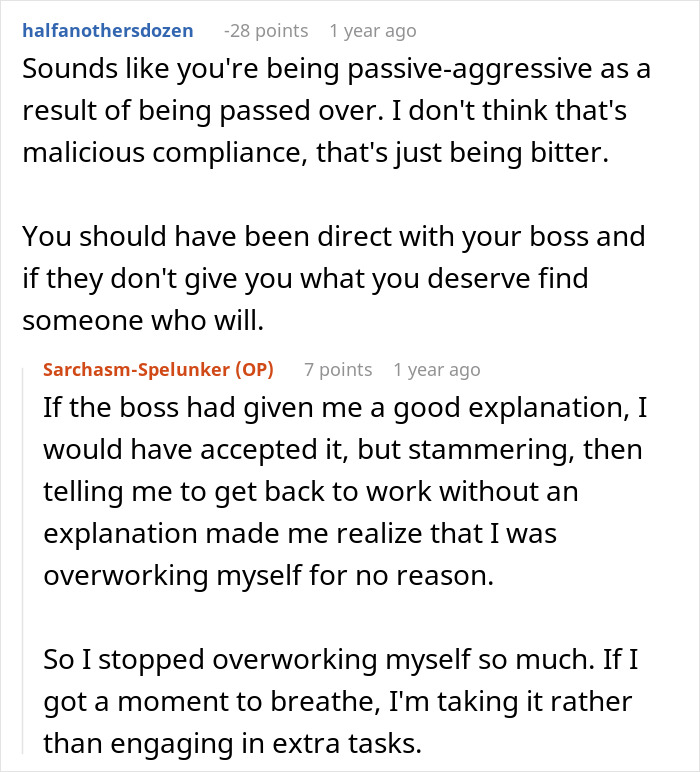
Others had a lot of opinions on the matter
